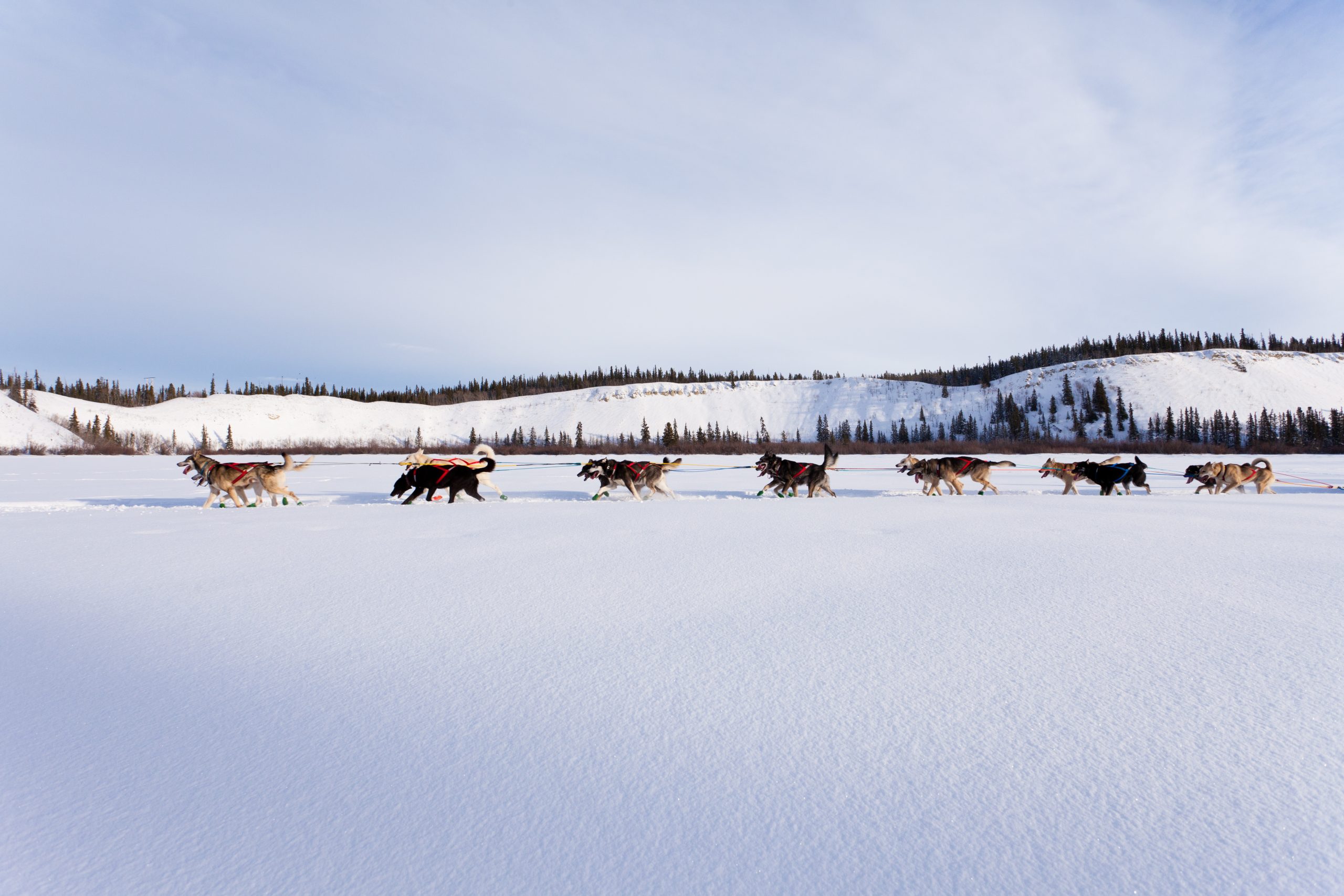
Why are we endlessly fascinated by The Call of the Wild? This latest BBC reading (9 March, 12pm) of the short novel is the third to air in four years, and an excellent new movie with Harrison Ford was coincidentally released in February. Is it the sheer extremity described in Jack London’s lavishly talented 1903 book about the Klondike goldrush and the sledge-dragging dogs tortured by toil, that compels us? The appalling toughness. Or is it that quintessentially American literary thing: action and adventure, and the exquisite crossover between adult and child audiences. Even Moby Dick! Which contains within it one almost childishly thrilling idea.
This new reading (by Kerry Shale, in a meticulous First Nations accent) cherishes every one of London’s characteristically pared-back sentences. Like when our canine hero, Buck, licks snow for the first time, and notes: “it bit like fire, and the next instant was gone”. Buck’s life is one “filled with shock and surprise” with “the imperative need to be constantly alert”.
London’s account in the book was first-hand. He’d been to the Yukon aged 21, and had endured the shit and scurvy (his four front teeth fell out) and the “law of club and fang”, which brutalised both man and beast. London never really recovered his health, dying aged just 40. Everywhere in Call is that rare thing: the sense of something written right on the edge of survival. And the unstoppable, atom-deep “pleading of life” heard in nature – especially in the howl of a dog. “One of the first songs of a younger world in the days when songs were sad…”
Does anybody else manage to describe the mutual connection between dog and owner quite like London does in this book? “Love that was feverish and burning, that was adoration, that was madness.” And yet the psychology of Buck in The Call of the Wild remains so original and admired because it believably leaps, line after line, into a not totally anthropomorphised animal’s mind. These are always still dogs. More than anything, The Call of the Wild is a book about intuitive intelligence. A spare, brutal, tender reading.
The Call of the Wild
BBC Radio 4
This article appears in the 04 Mar 2020 issue of the New Statesman, Inside No 10



